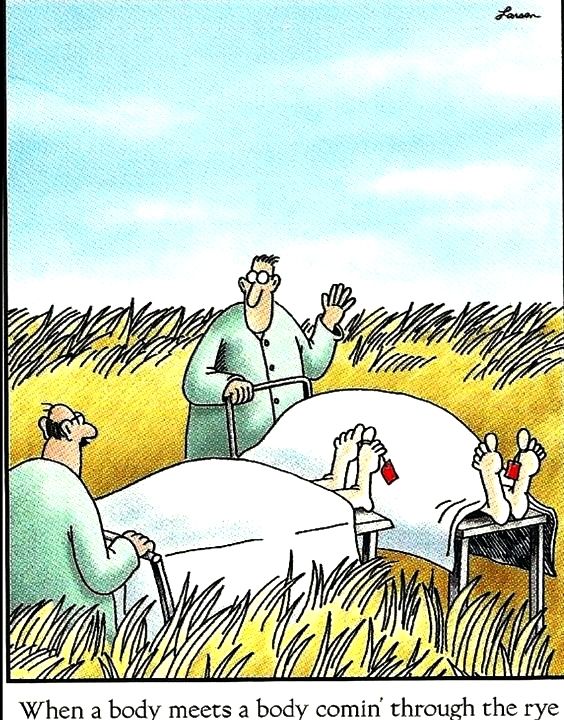There are two ways you might talk about a sneezing norm, “You don’t sneeze at a party” and “One doesn’t sneeze at a party.” I have disliked “One doesn’t sneeze” since childhood, because it uses “one”, not “he”. “One” is not our usual sort of pronoun: it is an indefinite pronoun. So is “they” in some of it use, informally, and so is “you”, and perhaps even “people”. But that is not the problem. Wikipedia‘s useful article “One (pronoun)” tells us it may come from the French “on“. In French, however, “on” is a different word from “un” or “une“, the masculine and feminine of the number “one” and the article “a”. In English, when we see “one”, we think of the number. Thus, “One doesn’t sneeze at a party” makes us think that maybe two *would* sneeze at a party, perhaps while doing the tango. In Scots, you’d say “A body doesn’t sneeze at a party,” and it would sound clearer or more natural– indeed, I like that better than “You don’t sneeze at a party”, since there’s no confusion with “you” other use either. There is, to be sure, some problem with thinking of our fleshly bodies, but that is a perfect semantic distance away. It is far enough for us to be conscious of any tension and thus to get beyond it, but close enough to provide opportunity for double entendre, jokes, and allusions if we feel like it. Recall Gary Larson’s cartoon, “When a body meets a body, comin’ through the rye.” Nor would the French have a problem with their “On n’eternuet a une fete” (I must find out the correct French for that). They, on the other hand, might have slight mental confusion over whether it’s okay to eternue that night if you’re going to two parties, or are going to keep going to parties forever, a sort of Hitlerian Big Sneeze principle.

2 replies on “Indefinite Pronouns”
[…] 1.C. P. Snow, Good Judgement and Winston Churchill 2. Indefinite Pronouns 3. jkjlk […]
[…] contractions, Maybe I do already in the 2001 chapter. Do I mention Judge Posner? 
 (8) Indefinite Pronouns. 
 (9) Quotations punctuation and capitalization Quotation style is messed up. I really must […]